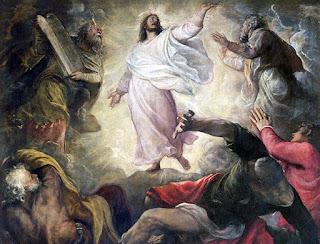Scripture readings for today's reflection can be found at The Seventh Day in the Octave of Christmas | USCCB
On
this Seventh Day in the Octave of Christmas, we hear in the gospel two
important things regarding our faith in Jesus Christ. First is that Jesus is
not only fully human, but fully God.
In
the gospel we hear: “In the beginning was the Word, and the Word was with God, and the Word was God.” (John 1:1) John, the writer of the Gospel, is making it clear that
Jesus, the Word, was not only with God, but was God. And then John goes on to
say that Jesus, the Word, became flesh and dwelt among us. This is a clear
teaching that Jesus is True God and True Man.
The
second important thing in today’s gospel was the fact that John the Baptist was
pointing out the importance of Jesus to his followers. John was the forerunner
of Jesus Christ and was sharing the good news that Jesus Christ was indeed the
long-awaited Messiah. In today’s gospel we hear John say, “This was he of whom
I said, ‘The one who is coming after me ranks ahead of me because he existed before me.’” (John 1:15) John had a large
following. Those followers of John, at first, believed that he was the Messiah.
John, in his humility, pointed out he was not the Messiah, but rather Jesus
Christ was the long-awaited Messiah. From the time John leaped in the womb of
Elizabeth during the visitation of Mary, acknowledging the presence of Jesus in
Mary’s womb, to the time John was baptizing people for the repentance of sin in
the Jordon, John was always directing everyone to believe and to follow Jesus
as the Messiah.
We
are to be imitators of John the Baptist. We are to share our faith in the fact
that Jesus Christ is true God and true Man, and that He came to our world to
suffer, die, and rise from the dead, in order to bring us salvation.
As
followers of Jesus Christ, let us always point towards Jesus Christ to all our
friends and relatives that Jesus Christ is Lord and Savor for all of us.
























